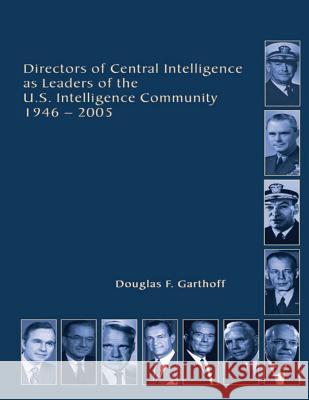Directors of Central Intelligence and Leaders of the U.S. Intelligence Community » książka
Directors of Central Intelligence and Leaders of the U.S. Intelligence Community
ISBN-13: 9781478362654 / Angielski / Miękka / 2012 / 362 str.
In the wake of 11 September 2001, the issue of homeland security spawned a vibrant public discussion about the need to coordinate a wide range of federal governmental activities to achieve greater security for the United States. Congress enacted laws that established a new executive department, the Department of Homeland Security, and a new federal intelligence chief, the director of national intelligence. In both cases, the objective was to integrate activities of disparate organizations better in order to improve critical government functions. In fact, for more than half a century, there have been numerous efforts to enhance cooperation among the many parts of the nation's intelligence establishment under the leadership of a principal intelligence official, called the director of central intelligence. The story of this study is what the nation's leaders expected of directors of central intelligence in accomplishing this task, and how those who held the responsibility attempted to carry it out. The hope is that lessons drawn from that experience can inform today's ongoing debate about how best the new director of national intelligence can accomplish America's national intelligence mission. The study presents an unusual perspective. Examinations of past intelligence performance often focus on how intelligence has played a role in specific circumstances. Studies of directors of central intelligence have usually stressed how they led the Central Intelligence Agency, conducted their relationships with the president, or affected US policy. No study until this one has focused on how each director sought to fulfill his "community" role. This book was prepared under the auspices of the Center for the Study of Intelligence by Dr. Douglas F. Garthoff, a former CIA analyst and senior manager. It reflects the author's deep experience in Intelligence Community affairs as well as his extensive research and interviews. Dr. Garthoff's study represents a valuable contribution to our professional literature and a rich source of insights at a moment when the responsibilities and authorities of the Intelligence Community's senior leadership are again in the public spotlight.
Zawartość książki może nie spełniać oczekiwań – reklamacje nie obejmują treści, która mogła nie być redakcyjnie ani merytorycznie opracowana.











